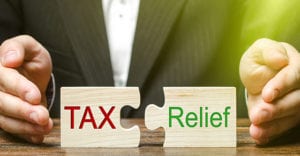
The Treasury Department and IRS recently announced an extended deadline for filing tax returns and making payments for the 2019 fiscal year. The filing due date for federal income tax is now July 15, 2020 instead of April 15, 2020.
Taxpayers can additionally defer their income tax payments, which are typically due on April 15, until July 15, 2020. No interest or penalties will be charged, regardless of how much is owed. The deferment applies to all taxpayers: including individuals, corporations, trusts and estates, individuals who pay self-employment taxes, and other non-corporate tax filers. Initial quarterly estimated federal income tax payments (including any self-employment tax) for the 2020 tax year can also be deferred to the July 15 deadline.
No additional forms
Taxpayers automatically qualify for the extended deadline of July 15, 2020 for federal tax filing and payment, so there’s no need to complete and file any further requests. However, individual taxpayers who need time beyond the July 15 deadline can submit Form 4868 for a filing extension; businesses can do the same by using a Form 7004.
Expecting a refund?
If you’re anticipating a refund after filing your 2019 tax returns, you should file as soon as possible. Despite the COVID-19 outbreak, the IRS currently reports that most refunds are still being issued within the standard 21 days.
New and upcoming laws for COVID-19 relief
President Trump signed the Families First Coronavirus Response Act on March 18, 2020. This law enacts several relief programs for COVID-19, including free testing waivers, employment-related protections and benefits, extensions of existing federal nutrition programs, employer tax credits and exemptions, and additional health-related programs and insurance coverage assistance.
Furthermore, employees may be eligible for paid sick leave for reasons related to COVID-19. According to the IRS:
- Employees unable to work because they are caring for an individual in quarantine, no longer have access to appropriate childcare, or because they are personally experiencing health conditions similar to those specified by the U.S. Department of Health and Human Services can receive up to two weeks (up to 80 hours) of paid sick leave at ⅔ the employee’s pay.
- Employees unable to work while caring for a child whose school is closed, or child care provider is unavailable for reasons related to COVID-19 may qualify for up to ten additional weeks of expanded paid family and medical leave at ⅔ the employee’s pay.
Congress is currently working on an additional bill to provide economic relief, including sending checks to Americans below certain income thresholds. We will continue to keep you updated about these developments, but as always, please contact your trusted Smolin professional to learn more about how we can help you.
